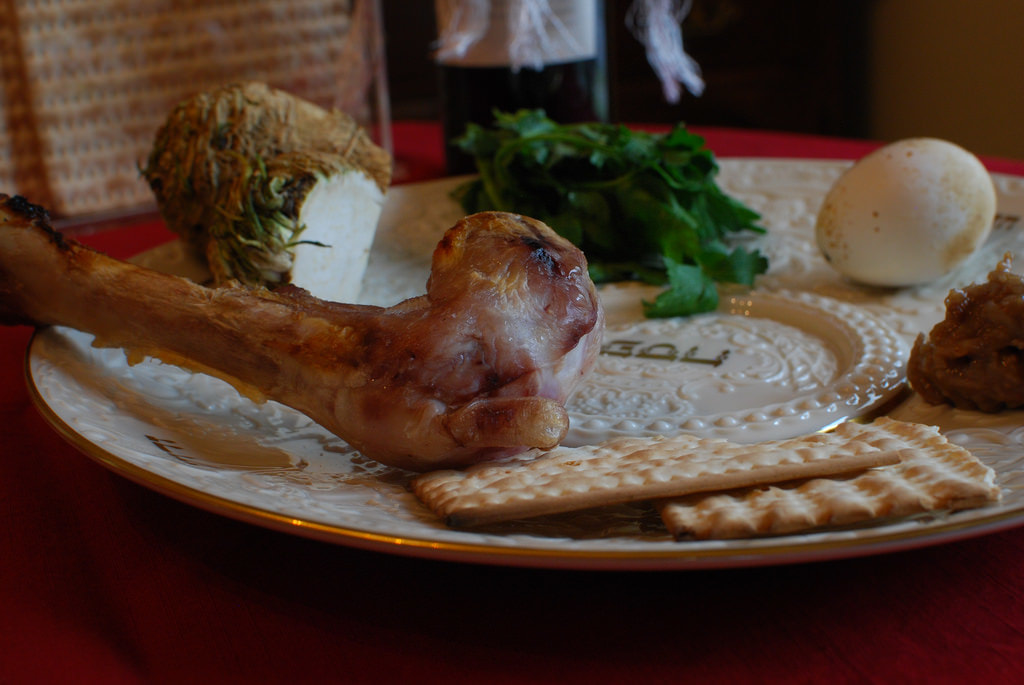|
"By the 7th day God had finished the work He had been doing, so on the 7th day He rested from all His work, and God blessed the 7th day and made it holy, because on it He rested from all of the work of creating that He had done." (Genesis 2:2-3) From the very beginning, God intentionally determined that there would be times for humankind to rest--weekly, monthly and yearly. He would call on His people to honor Him by remembering what He had done; they were to cease from their labors and meet with Him.
In the yearly cycle, there are three feasts of the Lord or "appointed times" (moadim in Hebrew) where God asked His people to go to the Temple. The celebrations of these appointed times are to be remembrances but also rehearsals or preparations for what is to come. Here are some things that God desires for us to do in the celebrating of the feasts: We are to draw near to God so that He draws near to us. We are to rest from our normal routine. We are to commemorate God's faithfulness. We are to look for God's plan of redemption in the feasts since it is there for us to see. We are to use the feast celebrations as a tool to teach the next generation about the Lord. We are to receive God's blessing as we draw close to Him for it is His intent to bless us. The book Spring Feasts and Purim, published by JVMI, says that we can "see the intricate picture of God's redemptive plan embedded into each of His "appointed times...While the Spring Feasts are connected to the first coming of the Messiah, His atoning sacrifice, His resurrection, and the outpouring of His Spirit almost 2,000 years ago in Jerusalem, the Fall Feasts are connected to His second coming. They are rehearsals of events yet to take place and will be fulfilled when He returns." The book of Leviticus has called the celebration of God's feasts "a lasting ordinance for generations to come." Yet, many in the Gentile Church see the celebration of the feasts as part of the Old Covenant and not for them. The Spring Feasts and Purim book addresses this issue: "While Gentile Believers are under no obligation to observe them, doing so can open up a whole new understanding of the continuity of the Scriptures and just how central the person of Jesus is to each of these feasts. After all, if Yeshua observed them, why shouldn't we as His followers?...Without an understanding of the Jewish context of the Bible, Gentile Believers often miss this exciting redemptive thread running consistently through the Old Covenant and pointing clearly to Yeshua...So, while not obliged to celebrate the Biblical Feasts, Gentile Believers have much to gain in their relationship with God by doing so." We are in the month of Nisan, the first one in the Biblical year. Passover, Unleavened Bread and Firstfruits have taken place. We still look forward to Shavuot/Pentecost and the Fall Feasts. I can tell you that God has blessed me abundantly as I have rested from my routine and researched His feasts, set aside time to read His Word and be with Him during His set-aside times. God made provision for Gentiles to participate in Passover. (Exodus 12:48) He requires participants to be circumcised. Have Believers not had their hearts circumcised? "The Lord your God will circumcise your hearts and the hearts of your descendants, so that you may love Him with all your heart and with all your soul, and live." (Deuteronomy 30:6) May I suggest that we set aside time to rest and meet with the Lord during His appointed times? I believe that your faith will increase, and the blessings of God will flow abundantly. |
Joan E. MathiasCategories
All
Archives
July 2024
|

 RSS Feed
RSS Feed